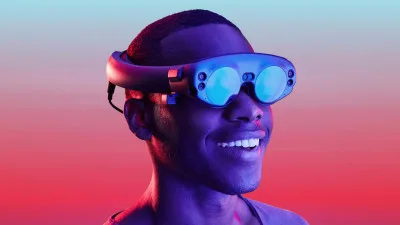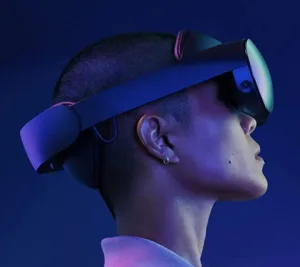Meta is in talks with Magic Leap to form a multiyear agreement. According to the Financial Times, the partnership would involve intellectual property licensing and contract manufacturing in North America to support Meta’s metaverse ambitions. While no joint headset is expected, Magic Leap’s expertise in waveguide technology is considered valuable.

Magic Leap’s waveguide technology has faced some criticisms. One of the main criticisms is the limited field of view (FOV) in Magic Leap’s AR headsets. Users have reported that the FOV provided by Magic Leap’s devices is smaller compared to some other AR offerings, resulting in a restricted view and a less immersive experience.
Another aspect that has been criticized is the image quality produced by Magic Leap’s waveguide technology. Some users have noted issues with image clarity, including a lack of sharpness and vibrant colors. This can diminish the overall visual experience and impact the realism of the virtual content overlaid on the real world. Additionally, the manufacturing complexity and cost associated with Magic Leap’s waveguide technology have been cited as challenges.
Meta’s interest comes as Apple prepares to launch its own mixed reality device. Meta has faced investor frustration over its metaverse project, but it continues to invest heavily. The collaboration with Magic Leap also aligns with efforts to reduce reliance on Chinese manufacturing. Magic Leap shifted focus to enterprise applications after disappointing consumer sales. Meta currently dominates the VR/AR headset market, but it has come at the cost of significant and mounting losses in its Reality Labs division.

